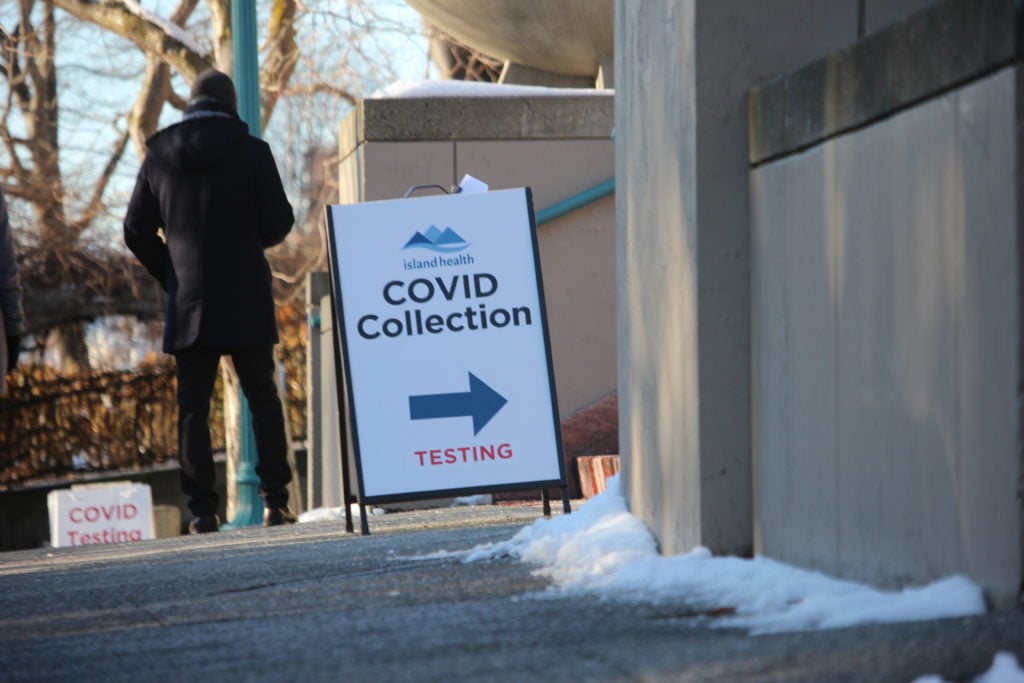
Hospitals around the world are facing growing pressure in the face of Omicron and according to new modelling, by the end of this month, B.C. will be facing a similar crisis.
“We’re talking about 4,000 cases in hospital whereas the previous maximum was 500 in this pandemic,” said Sally Otto, a UBC infectious disease modeller and member of the B.C. COVID-19 Modelling Group.
The group’s latest report lays out where B.C. is at now with Omicron and where it’s likely heading.
Because the province has hit its testing limits, their data shows that there are likely many more cases of Omicron circulating than are being reported.
Their modelling shows the number of active cases right now is likely ten times higher with as many as 5 per cent of the B.C. population currently infected. That would mean the chances of one person in a group of 10 having COVID-19 is now 40 per cent, and one in a group of 50 is 92 per cent.
“Unless we change things the models to project that most people will get infected, not everybody, but most,” said Caroline Colijn, an SFU infectious disease modeller and member of the group.
Looking at data around the world they say Omicron is causing less severe illness, considerably less in those vaccinated, hospital stays are shorter, and deaths are fewer. But still, with the sheer number of infections in the community, they say our healthcare system will be overwhelmed.
“It’s like a steep mountain, and at that mountain top those individuals all enter the hospital at the same time,” said Otto. “Each individual that can reduce their exposures this month is basically another individual that will not be needing or potentially needing hospitalization so every individual can help by removing themselves from that exposure.”
The modelling shows Omicron infections may peak by mid-January, hospitalizations by the end of the month and cases not to come back down even to current levels until March.
“The fact that this transmits so quickly also shortens that window of opportunity to do anything so it puts us in a tight position once we do see that pressure on the healthcare system because by then there may be so many infections out there it’s much harder to prevent further rises,” said Colijn.
READ MORE: Vancouver Island nurse’s return to work delayed due to COVID test backlog




